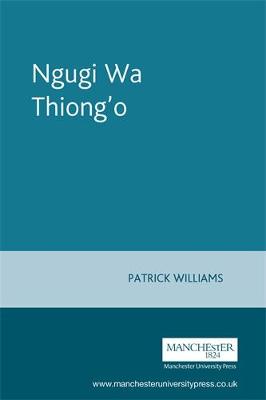Contemporary World Writers
1 total work
Ngugi is one of the most important contemporary world writers, and someone whose name has for many become synonymous with cultural controversy and political struggle. Patrick William's analysis offers an up-to-date study of Ngugi's writing, including his most recent collected essays. Focusing on important aspects of Ngugi's work which critics have hitherto ignored, and drawing on a wide range of relevant theoretical perspectives, this study examines the growing complexity of Ngugi's accounts of the history of colonized and post-colonial Kenya. The cultural and anti-imperial politics of Ngugi's experimentation with language and form in both novel and drama are discussed, including the important role of culture as a source of historical memory and strategies of resistance for oppressed groups. All the novels and the major plays are studied in detail, and in addition a chapter examines Ngugi's contribution in the area on non-fiction. This has become an increasingly important aspect of his work in recent years and he has become almost as well known for "Decolonising the Mind" as he has for contriversial championing of the use of indigenous languages in his novels.
